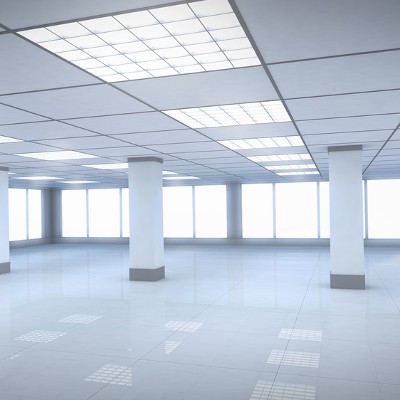- You are here:
-
Blog

-
Washington Works

- Tip of the Week: Avoid Unpleasant Surprises When Moving to a New Office
Washington Works Blog
Tip of the Week: Avoid Unpleasant Surprises When Moving to a New Office
So you’ve outgrown your office space and need to relocate. Congratulations on reaching this milestone with your business, but do you know what to look for in a new building? Finding the perfect setup can be daunting, especially if you don’t know what to look for. To help you out, here are four tips to make your transition easier.
Building Size and Systems
Before you fall in love with an office that seems to have lots of floor space, be sure to take measurements and know beforehand exactly how much square footage you’ll need. Ask yourself:
- Can the new space easily accommodate your staff with their workstations?
- Is there enough room to house your IT infrastructure?
- Can a backup generator easily be installed in order to prevent downtime?
- Is the HVAC system powerful enough to keep workers comfortable and your server units cool?
- Can the new building accommodate growth at the rate you’re currently experiencing and then some?
- Is there enough parking for everybody?
While some of these questions may seem obvious, if you overlook just one of these points, then you’ll experience some serious growing pains.
Cables (Phone and LAN)
BEFORE you have the moving team unload the truck of office furniture, you’re going to want cables in place. This is why it’s important to come up with a floor plan ahead of time, instead of just tossing desks wherever you feel like. When running cables, make sure that:
- You test them.
- They aren’t near fluorescent lighting and electrical cords.
- They’re properly labeled.
- You run two drops for each workstation, just in case one is bad.
- Determine if you’re going with a VoIP phone system that uses an Internet connection, or with a traditional phone system that uses landlines (which will require a different set of wires to run).
Also worth considering, if moving into a new office space represents a fresh start in terms of cabling, then you may want to look into a wireless networking solution. Going wireless cuts back the work of cabling, but it requires careful planning in order to make sure that each workstation and mobile device receives the needed bandwidth across the entire premises.
Efficiency and Expenses
Like with any major purchase, you don’t want to get stuck paying for more than you have to or be surprised that maintenance costs are higher than anticipated. One way to better understand a potential property is to consider its load factor; i.e., how much space is taken up by features that prevent utility, like hallways, elevators, restrooms, etc. Generally speaking, offices with a lesser load factor allow for more work-related resources. Therefore, be sure to account for load factor, lest risk going with an office space that advertises a large floor plan, but ends up being a tighter fit than anticipated.
Additionally, it’s crucial that you look beyond rent and factor in monthly maintenance costs. Make sure you know how much utilities and deliberations cost, and find out if the space comes equipped with any features that will help save on utilities, like solar panels.
The Neighbor Factor
Many office buildings are divided up and rented out to multiple businesses. Finding out what companies you’ll be sharing the building with is a task you’ll want to do before moving in, not after. Ask yourself these questions:
- How close is your nearest competitor?
- Will your neighbor’s business model and hours of operation interfere with your operations?
- How are the parking spots divided up among the tenants?
- What maintenance responsibilities are the landlord’s, and which are the tenant’s?
One way to get an inside scoop on the space is to ask a current tenant about their experience before signing the lease. A short conversation of this nature may save you a lot of headache by revealing pain points that you would have otherwise missed.
Once you have your new space picked out, you’re next going to want to move your technology in such a way that your systems won’t get damaged. This includes backing up your data, just in case, as well as making sure that your technology is compatible with your new setting. For assistance with all of your technology-moving needs, call Washington Works at 301-571-5040 and have us do the heavy lifting.
About the author
Washington Works has been serving the Bethesda area since 2005, providing IT Support such as technical helpdesk support, computer support, and consulting to small and medium-sized businesses.
Mobile? Grab this Article!
Tag Cloud

Comments